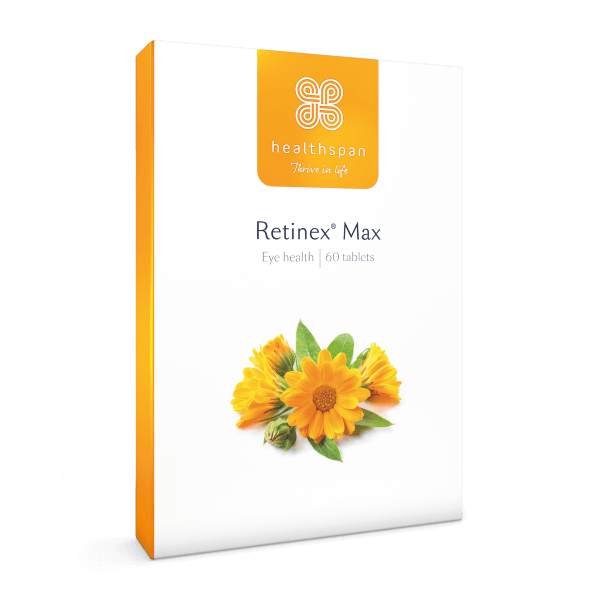We all know the standard advice when it comes to eye care. But what about the ways to look after them that are less well-known? We take a look at some surprising eye health solutions.
1. Look to marigolds
These sunny, yellow-orange flowers are a surprising friend for your eyes as they are rich sources of lutein. In fact, the chances are, if you take a lutein supplement, it is sourced from marigolds.
Lutein is vital for healthy vision. Research published in Optometry – the Journal of the American Optometric Association - shows that taking lutein supplements can improve vision in some cases of age-related macular degeneration (AMD). Participants in the study took 10mg daily - five times the average daily intake from diet alone.

Retinex Max
'Nature's sunglasses' containing lutein and zeaxanthin
- Contains 20mg lutein and 2,000mcg zeaxanthin
- Powerful carotenoids found in high concentrations in the eye
- Supports long-term eye health
2. Take a break
Like any part of the body, your eyes need rest too. "Whether it's from close-up work or time spent in front of a computer screen, taking regular breaks from screen time are important to prevent straining your eyes," says GP Dr Rob Hicks.
The 20/20/20 rule is a good one to follow: work for 20 minutes, then look 20 feet away for 20 seconds.
3. Eat the 'traffic light' way
"A great tip for good eye health is to simply 'traffic light' your way to great eye health," says nutritionist Rob Hobson. "Eat plenty of dark-green, leafy vegetables, such as kale, which are high in lutein and zeaxanthin. These are concentrated in the macula of the eye and help to filter out harmful light.
Red and orange foods, such as squash and tomatoes, are rich in lycopene and beta carotene, which help to protect against UV radiation."
4. Beat stress
"It's important to understand that your eyes are sensitive to stress," says lifestyle doctor Dr Chidi Ngwaba. "It can impact your visual skills in various ways. These include headaches, glasses and contacts never feeling 'right' on your face, difficulty concentrating, watery eyes, sensitivity to light, poor eye-hand coordination and a constant eye twitch."
Deal with your stress by talking to someone or seeking help and finding ways to help you relax.
5. Pay attention to the seasons
Spring and summer can play havoc with our eyes. Seasonal allergic conjunctivitis is normally caused by hay fever, but perennial allergic conjunctivitis can be caused by dust mites and pets.
Try to avoid known allergens where possible and keep a diary to track the severity of symptoms. If symptoms are persistent, chat to your optometrist to see what other options are available to help relieve your discomfort.






